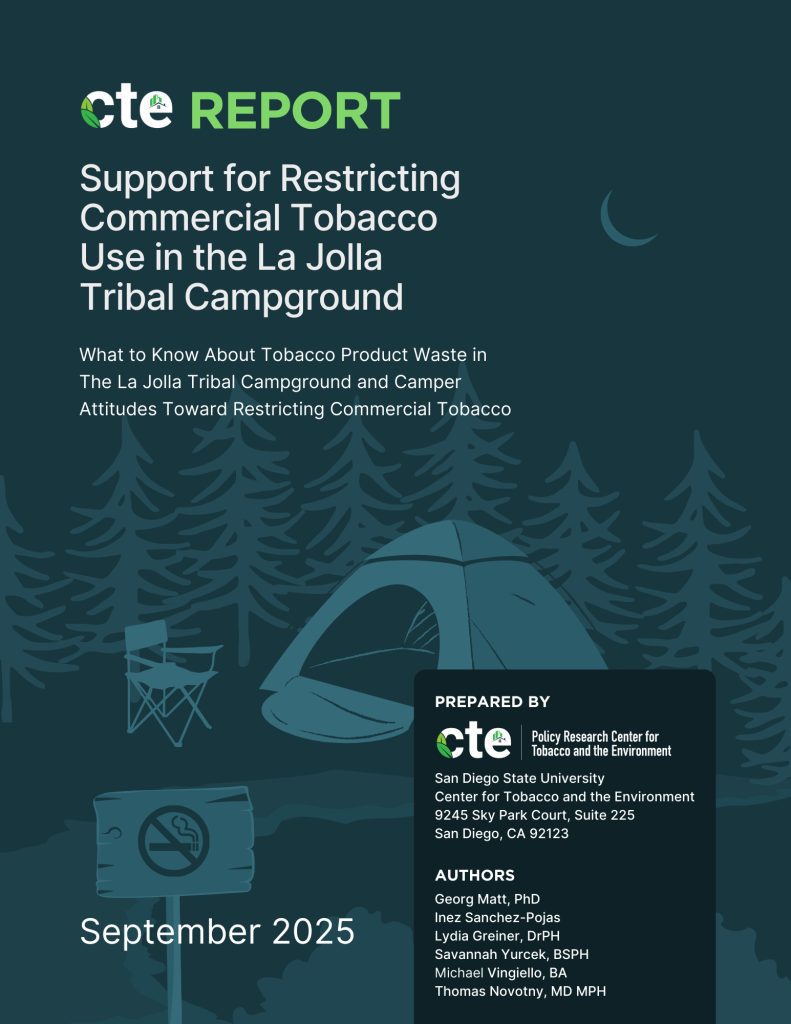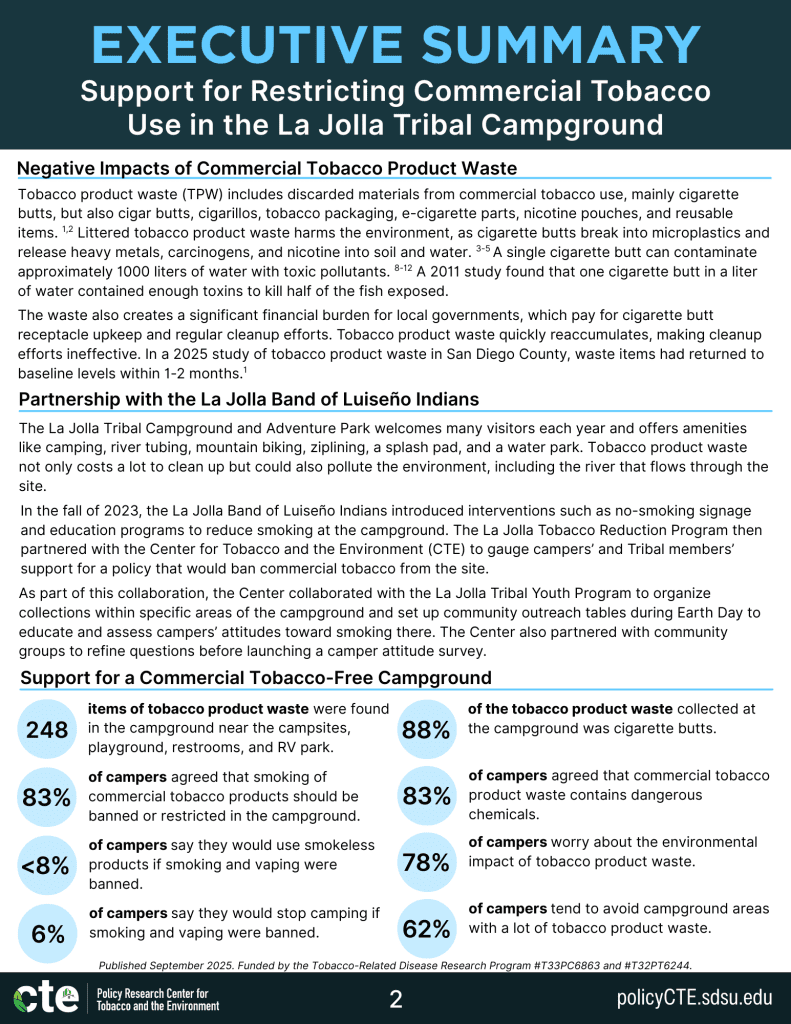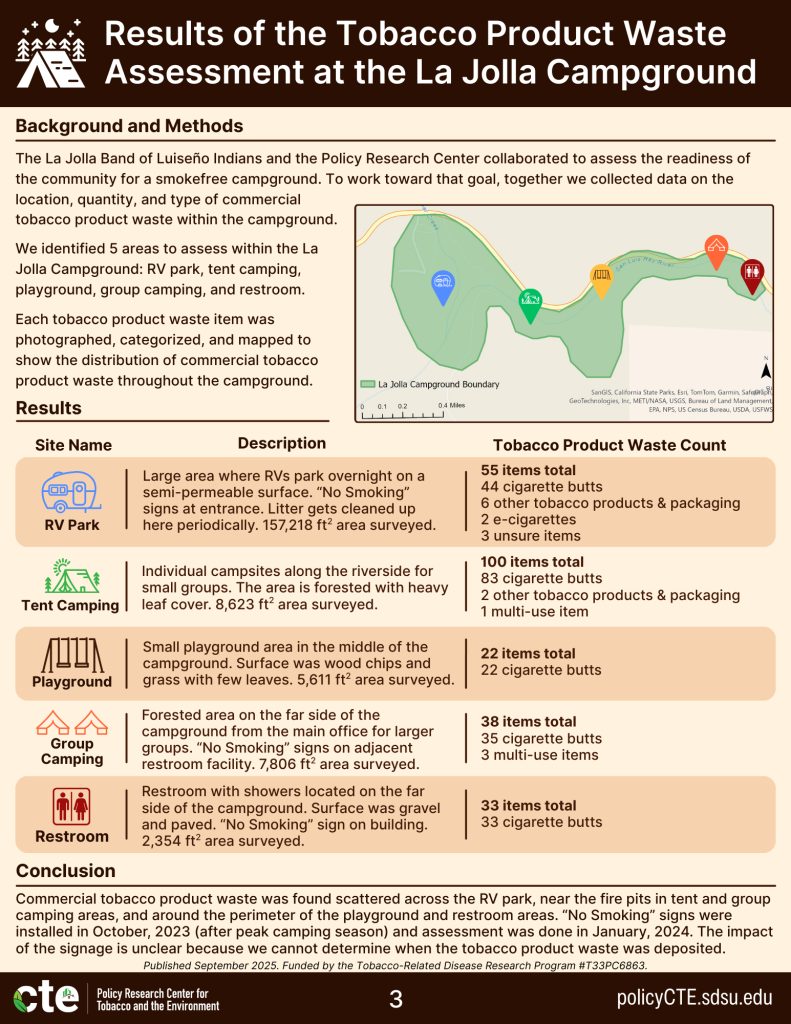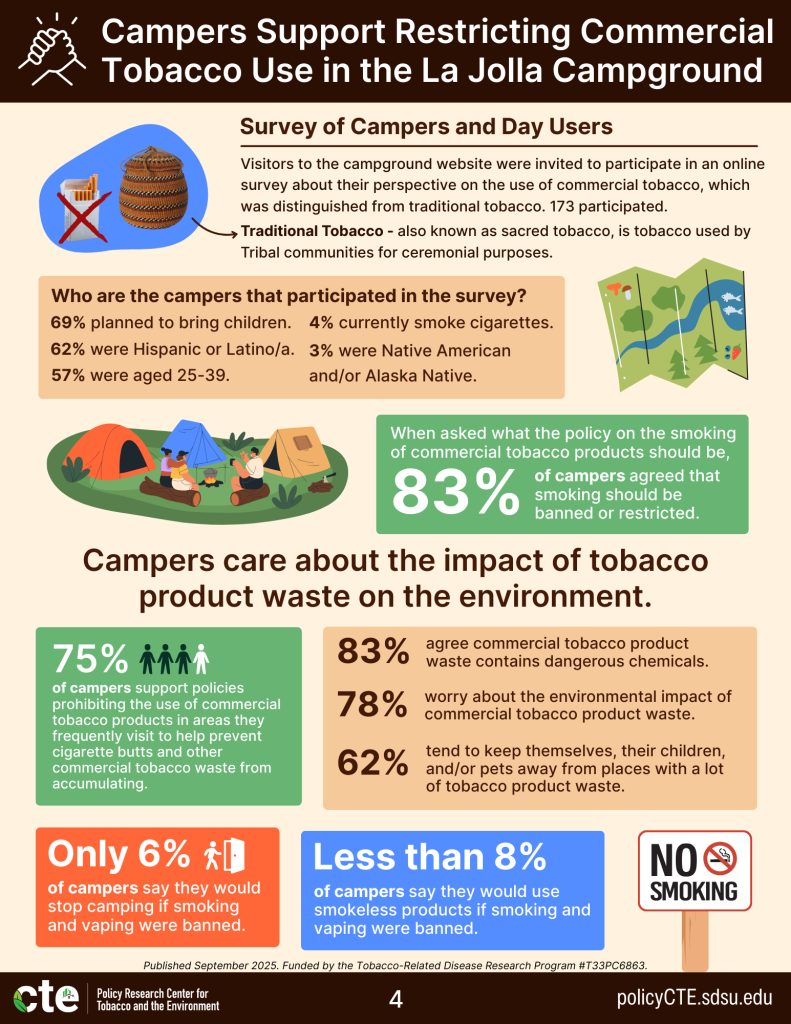 Overview
Overview
The La Jolla Band of Luiseño Indians wants to work with the Policy Center to implement an equitable, effective smokefree policy at the La Jolla Indian Campground to protect the environment and the health of campers and management.
Rapid Response Projects (RRPs)
We asked these questions for this Policy Initiative:
- Do campers support a smokefree policy?
- Does the La Jolla Band of the Luiseño Indians support a smokefree policy?
- What are the successes and challenges of smokefree policies in local campgrounds?
- How does tobacco product waste impact the La Jolla Indian Campground?





